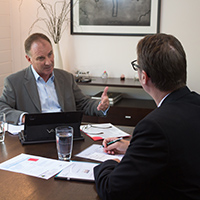For decades, alarms have sounded about declining engagement. Yet companies continue to struggle with toxic cultures, and the low productivity and unhappiness that go with them.
• Why is "culture" so difficult to improve?
• What makes so many good employees ‘give up’ and leave an organisation?
It all boils down to trust.
Repairing and replacing a damaging workplace culture is tough - largely because people form and join cultures instinctively.
Neuroscientist Paul J. Zak set out to shed light on this cultural blindness by measuring the brain activity of people at work. His research uncovered the connection between the release of the feel-good neurochemical oxytocin and the experience of being trusted.
The oxytocin rush revved up recipients of trust to reciprocate by being trustworthy and more trusting of others. "Trust motivates a desire to make an extra effort to reach organisational goals," Zak attests. "A culture of trust is a powerful lever on human behaviour - as long as it is properly implemented."
‘Trust Factor’ opens a window on how brain chemicals affect behaviour, why trust gets squashed, and ways to consciously stimulate it by celebrating effort, sharing information, promoting ownership, and more. The Ofactor(TM) survey, data, and examples support the action plans.
In ‘Trust Factor: The Science of Creating High-Performance Companies’, Zak shows that building a culture of trust is essential for any organisation that aims to be successful. An engineering guide to getting the "soft stuff" right, ‘Trust Factor’ identifies eight components of a culture where employees feel empowered, valued and happy, re-inforced by the acronym OXYTOCIN.
Here’s a workplace example to reflect on, work colleagues hate surprises. But two out of three employees are surprised by the feedback in their annual performance reviews. Compare that to how often supervisors check in with highly engaged employees: weekly. Those who get weekly feedback are rarely surprised. As a leader of your team are you regularly checking in with each and every member of your team?
Engagement programs and monetary rewards are band-aids on broken bones. To get to the root of the problem, you've got to go deeper. Setting difficult but achievable expectations engages the brain's reward system so that meeting goals at work becomes highly engaging and enjoyable.
Reference: Paul J. Zak: ‘Trust Factor: The Science of Creating High-Performance Companies’



























